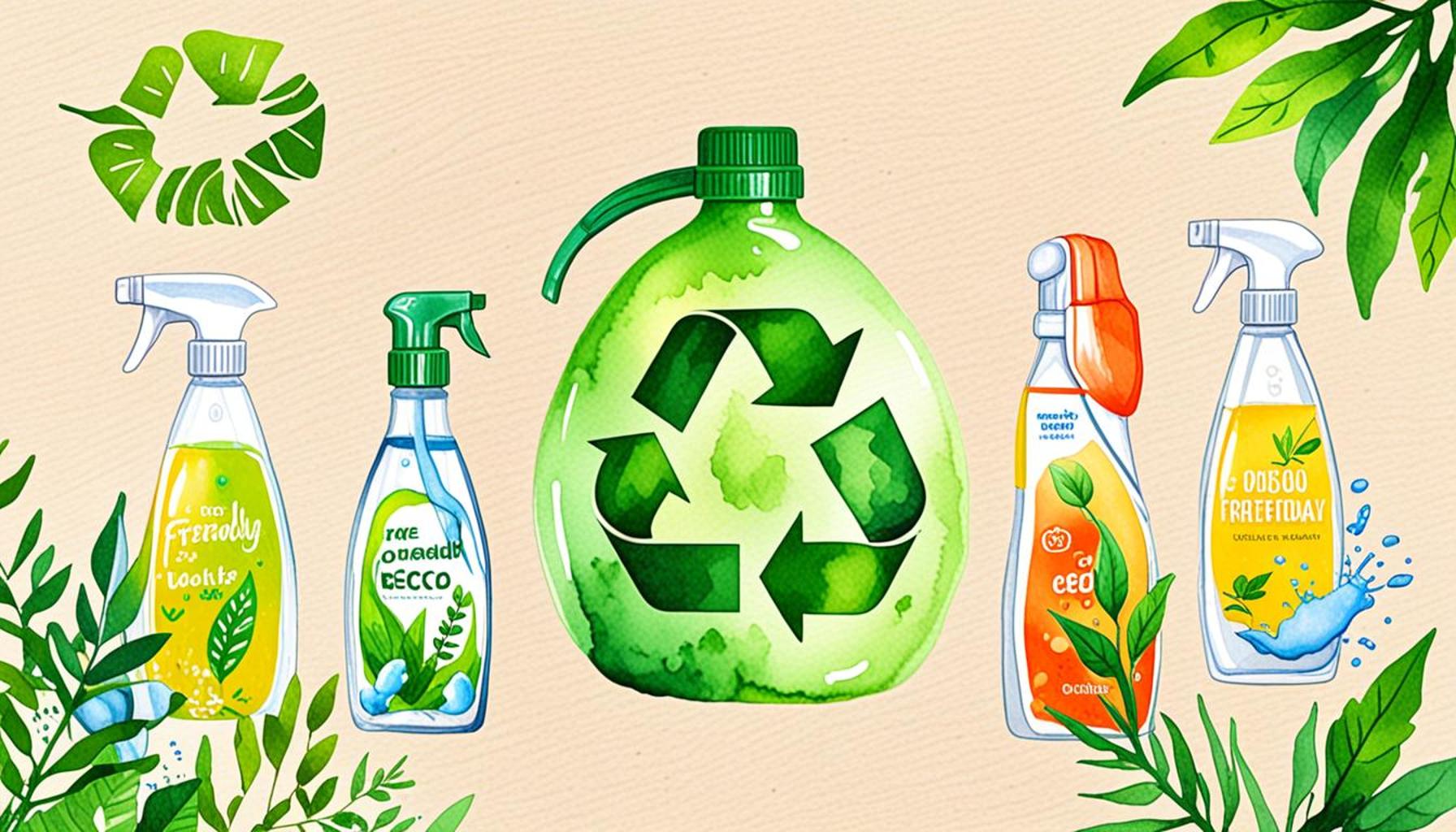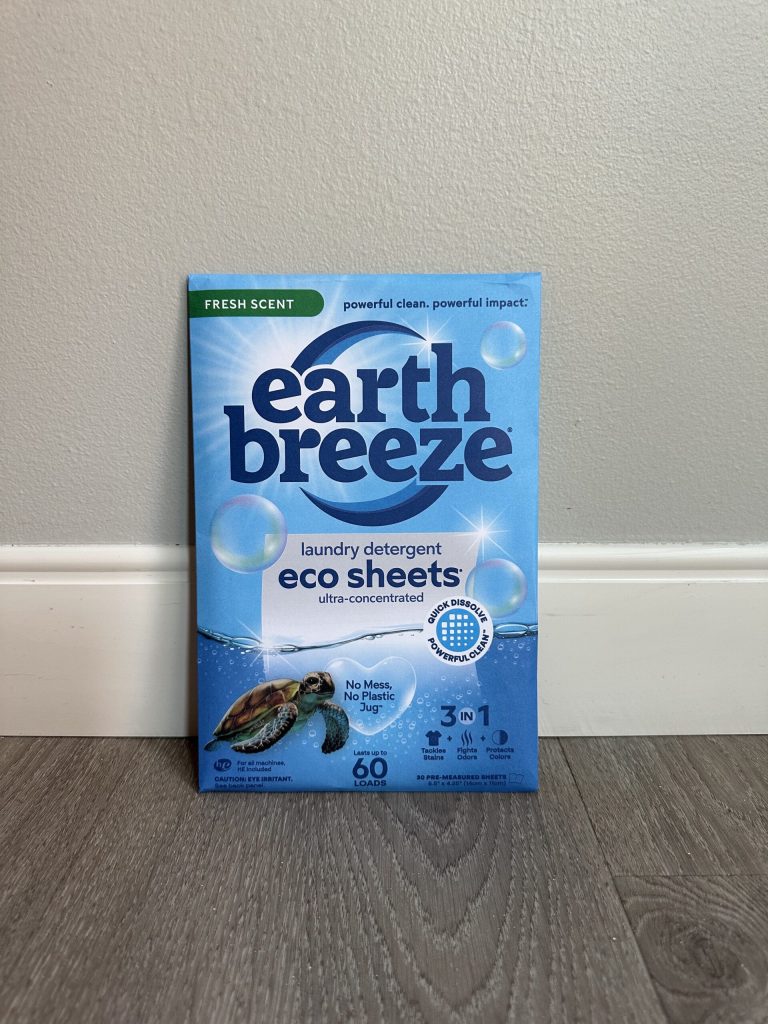Do Eco-Friendly Detergents Really Work Find Effective Green Solutions

Unveiling the Truth About Eco-Friendly Detergents
As the conversation around sustainability grows, many consumers are turning to eco-friendly detergents in hopes of making a greener choice. However, the question remains: do these products really tackle tough stains effectively? A deeper examination can illuminate the realities underlying these increasingly popular cleaning products.
The market is flooded with numerous brands claiming eco-friendliness, which can make it difficult for consumers to navigate the plethora of options available. It becomes essential to differentiate between myths and facts regarding their efficacy. Consider these key factors:
- Ingredients: Eco-friendly detergents often feature plant-based ingredients, such as coconut oil surfactants, instead of harsh chemicals like chlorine and phosphates. For example, brands like Seventh Generation and Mrs. Meyer’s Clean Day utilize essential oils and biodegradable surfactants that effectively lift dirt and stains while being gentler on both skin and the environment.
- Performance: Interestingly, research indicates that some biodegradable options can work as well as traditional detergents. Studies conducted by environmental organizations and consumer reports show that several eco-friendly detergents consistently perform admirably, in comparable settings against their chemical-laden counterparts.
- Environmental Impact: A significant advantage of many green products is their avoidance of phosphates and sulfates, which can contribute to water pollution. The use of eco-friendly detergents reduces the likelihood of eutrophication, a process that leads to excessive algae growth in water bodies, harming aquatic life. Brands committed to sustainability prioritize biodegradable ingredients, ensuring less environmental footprint.
This shift towards sustainability raises significant inquiries. Are these eco-friendly solutions just a marketing ploy, or do they genuinely provide a clean and safe alternative? Consumer awareness is crucial here. With increasing environmental regulations and a desire for healthier living, brands have responded to the demand for cleaner products. Companies like Ecover and Biokleen have been pioneers in this space, transforming the perception of household cleaning.
Understanding the effectiveness of green solutions is key for consumers striving to protect both their homes and the planet. In this exploration, we will dig deeper into the performance of eco-friendly detergents. The goal is to uncover effective options that align with your farmhouse’s cleanliness and your eco-conscious values.
As you consider your next purchase, it may be beneficial to look for certifications such as the EPA’s Safer Choice or the USDA Organic label, which can offer further assurance about the products’ eco-credentials. With a more informed approach, you can contribute to a cleaner planet while effectively maintaining a pristine home.

SEE ALSO: Click here to read another article
Evaluating the Efficiency of Eco-Friendly Detergents
In an era where environmental consciousness is on the rise, many consumers are left grappling with a critical question: does choosing eco-friendly detergents compromise the effectiveness of cleaning? The answer unfolds in a complex landscape that transcends a simplistic green-versus-conventional perspective. To fully grasp the performance of these sustainable alternatives, it is important to delve into their formulation and real-world operational effectiveness compared to traditional cleaning agents.
At the heart of eco-friendly cleaning products lies their formulation. Unlike their conventional counterparts, which may rely heavily on synthetic chemicals, many eco-friendly detergents use biodegradable ingredients sourced from natural materials. These ingredients often include plant-derived surfactants and biodegradable enzymes that can effectively break down stains without the harsh effects associated with traditional chemicals. For instance, brands like Method and BioKleen proudly promote their non-toxic compositions, targeting those who prioritize not only cleanliness but also the health of the environment and their families.
To evaluate performance, one must consider several key metrics that consumers commonly reference when selecting a detergent. One area of concern for consumers is stain removal capabilities. Research has demonstrated that many top-tier eco-friendly detergents are capable of efficiently addressing everyday stains—think grass, red wine, or oil—using natural yet powerful ingredients that activate even at lower temperatures. This attribute not only conserves energy during washes but also underscores the product’s effectiveness.
Another significant performance characteristic is odor neutralization. While traditional detergents may mask odors with synthetic fragrances, eco-friendly options often employ natural essential oils that do more than just smell pleasant; they can neutralize the odor-causing bacteria left behind from tough stains. Brands such as Seventh Generation utilize these natural fragrances effectively, ensuring that laundry comes out smelling fresh without artificial additives that may irritate sensitive skin.
Water composition also plays a role in cleaning effectiveness, particularly in hard water areas prevalent across various parts of the United States. Certain eco-friendly detergents are formulated with natural additives that help soften water, enhancing overall cleaning power. This feature is incredibly useful for households facing challenges with mineral buildup or residue, highlighting that eco-friendly does not equate to less effective.
As sustainability continues to gain traction among consumers, companies are actively enhancing their formulations while increasing transparency about ingredient sourcing. A notable example is Ecover, which regularly updates its product lineup to maintain both high performance and ecological integrity. The evolving landscape encourages curious consumers to explore varied brands and their corresponding performance metrics to identify the best match for their cleaning needs.
Moreover, understanding certifications is vital in this evaluation process. Look out for labels such as ECOLOGO or Green Seal, which ensure that products have undergone rigorous assessment to verify they meet strict environmental standards. These certifications can serve as a guidepost for consumers committed to a cleaner and greener lifestyle.
As more individuals seek effective green solutions that do not compromise on cleaning quality, informed choices become imperative. By exploring detailed information about eco-friendly products, consumers can confidently transition to sustainable cleaning practices that align with their performance expectations, benefiting both their households and the environment.
| Category | Key Characteristics |
|---|---|
| Natural Ingredients | Made from plant-based and non-toxic components that minimize environmental impact. |
| Skin-Friendly | Free from harsh chemicals, making them safer for sensitive skin and allergies. |
| Biodegradable | Break down naturally, reducing long-term pollution and waste in landfills. |
| Energy Efficient | Can be effective in cold water, saving energy costs and reducing carbon footprint. |
| Cost-Effective | Often concentrated formulas allow more washes per bottle, stretching your budget further. |
Exploring the world of eco-friendly detergents reveals a variety of **beneficial features** that attract eco-conscious consumers. With a growing demand for sustainable cleaning solutions, these detergents are formulated to be as effective as traditional options while prioritizing environmental sustainability. The presence of natural ingredients means fewer harsh chemicals leaching into water supplies, promoting clearer aquatic ecosystems. Moreover, the energy-efficient properties of many eco-friendly detergents not only assist in cleaner washing but also contribute to significant energy savings, making them a sensible choice for cost-conscious households. Consumers will find that investing in these products not only meets cleaning needs but also supports a greener planet. The commitment to biodegradable materials enhances the overall effectiveness of these products in combatting waste, a crucial step towards a sustainable lifestyle. Thus, for those questioning whether eco-friendly detergents really work, the answer lies in their dual-focus on **cleaning power** and environmental protection.
SEE ALSO: Click here to read another article
Understanding the Limitations and Advances in Eco-Friendly Detergents
While many eco-friendly detergents have proved their cleaning prowess, it is essential to recognize that they may have limitations when dealing with certain extreme stains or heavy-duty cleaning tasks. For instance, users may find that eco-friendly products can falter in comparison to conventional detergents in scenarios such as heavily soiled work clothes or specific industrial applications. This has led to a growing discussion among consumers and manufacturers about the need for balance between eco-friendliness and effective stain removal.
One area where eco-friendly detergents are making significant strides is in the innovation of enzymes. These biochemical catalysts originate from natural sources and are increasingly incorporated into eco-friendly formulas to enhance their cleaning effectiveness. For example, proteases target protein-based stains, while amylases break down carbohydrate residues. Consider brands like Mrs. Meyer’s Clean Day, which leverage these natural enzymes, leading to more sophisticated cleaning capabilities that were previously thought to rely solely on chemical-heavy formulations.
Furthermore, as eco-friendly cleaning solutions evolve, they are beginning to mirror the market’s growing demand for concentration. Many consumers are opting for compact products that require less water during production and less packaging waste overall. Concentrated detergents can provide significant environmental benefits, as they deliver equal or superior levels of cleanliness without the bulk associated with traditional detergents. Seventh Generation has rolled out a line of concentrated pods that epitomize this movement, allowing consumers to tackle laundry with small, effective solutions.
Consumer Feedback and Product Trials
Recent studies and surveys have highlighted a noteworthy trend: the increasing consumer reliance on product trials and feedback before making purchases. The online review culture has transformed how eco-friendly detergents are assessed. Potential buyers often turn to platforms like Amazon and consumer blogs to glean real-world experiences from others who have made the switch to green alternatives. These platforms can serve as treasure troves of information, revealing which brands excel in performance and which may require further innovation.
Moreover, savvy consumers have begun conducting comparative wash tests at home, placing eco-friendly detergents against traditional products. Findings from such informal studies frequently showcase the strengths and weaknesses of each type, ultimately leading to informed decisions. Groups or communities dedicated to sustainability often host wash test events, gathering data on a variety of eco-friendly brands to help transcend marketing claims backed by evidence-based results.
The Role of Education and Transparency
Education plays a pivotal role in the eco-friendly cleaning journey. Companies are becoming increasingly aware of the need to educate consumers regarding product formulations. Often, marketing can create misconceptions about effectiveness. A brand that clearly articulates the specific roles of each ingredient not only builds trust but also demystifies the cleaning process. For instance, clear labeling of plant-based versus synthetic components empowers consumers to understand their green choice’s impact.
As more consumers turn towards environmentally responsible lifestyles, both the industry and educational institutions are stepping up their efforts in research and development. This collaboration is not solely focused on formulation but also includes creating awareness about the effects of water quality, types of fabrics, and even washing machine settings on cleaning outcomes. Such comprehensive educational initiatives can foster communal trust and encourage responsible usage and disposal.
Innovation appears to be steering the eco-friendly detergent industry towards a bright future. By aligning advanced formulations with continual transparency, consumers can feel confident about the potent power of green solutions in their quest for effective and sustainable cleaning practices.
CHECK OUT: Click here to explore more
Final Thoughts on Eco-Friendly Detergents
The quest for effective green solutions in laundry care has opened the door to a world where washing can be both clean and environmentally responsible. As we’ve explored, eco-friendly detergents are not merely a passing trend but a sophisticated response to consumers’ growing demand for sustainability. While these products may show some limitations in tackling the toughest stains or extreme cleaning scenarios, advancements in formulations, particularly through natural enzymes and concentrated versions, have significantly enhanced their effectiveness.
Furthermore, the rise of consumer feedback and product trials underscores the importance of transparency and informed decision-making in the eco-friendly detergent landscape. As consumers become more discerning, their collective experiences and insights are vital in shaping product development and encouraging brands to innovate responsibly.
Education around these products also plays a crucial role. Clear communication about ingredients and their functions helps to demystify eco-friendly cleaning. As brands embrace education and transparency, consumers will feel more empowered to make choices that align with their values while achieving optimal cleaning results.
In conclusion, while eco-friendly detergents may not always outperform traditional options in every situation, their advancements suggest that they are more capable than ever before. So, when pondering the question, “Do eco-friendly detergents really work?” the answer resoundingly points towards a promising future where sustainability in our everyday cleaning routines can lead to a healthier planet—one wash at a time. Embrace eco-friendly choices, and explore the various effective green solutions available; there is much to discover for those willing to make a conscious cleaning shift.



